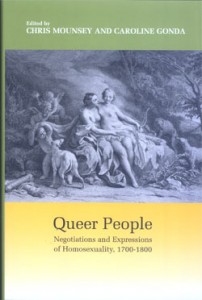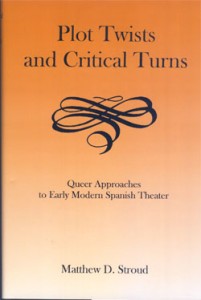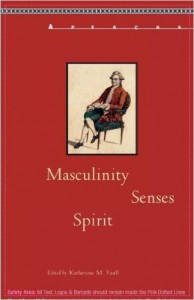The month of October is more than apple-picking and Halloween costumes, it is a month of remembrance for the LGBT community and those who have fought, and continue to fight, for not just tolerance, but acceptance.
Within every documented culture homosexuality has been evident, and yet, even today, the LGBT community still struggles for acceptance. Only in recent years have steps even been taken. Pre-WWII little advancement for the community occurred, although some German scientists such as Sigmund Freud and Magnus Hirschfield studied, and were sympathetic to the plight against, homosexuality.
After WWII, however, as men and women in the LGBT community met through the massive transition, steps finally were taken for equality. The Mattachine Society, founded by Harry Hay and Chuck Rowland, and Daughters of Bilitis, founded by Phyllis Lyon and Del Martin, were the first gay and lesbian organizations offering outreach. Along with growing support from prominent psychologists and sociologists, the beginnings of the movement were born. In 1969, Stonewall became the turning point in the cause when patrons of the Stonewall Inn fought back against police raids on gay bars. Since then, many advancements have been made and the community has expanded to include a much wider range of sexual and gender identities.
As the fight for acceptance continues today, there exists large amounts of writing on the LGBTQ community, some found in the Bucknell Press’s own collection: Queer People edited by Chris Mounsey and Caroline Gonda depicts the lives and representation of homosexuals in the eighteenth century, from the famous to the anonymous; Masculinity, Senses, Spirit edited by Katherine M. Faull explores the interrelationship between gender and sexuality from the eighteenth century to present; Plot Twists and Critical Turns: Queer Approaches to Early Modern Spanish Theater by Matthew D. Stroud studies the Spanish theater and the absent queer object as well as the strong gender conformity throughout.
 Queer People: Negotiations and Expressions of Homosexuality, 1700-1800
Queer People: Negotiations and Expressions of Homosexuality, 1700-1800
Edited by Chris Mounsey and Caroline Gonda
This fascinating and diverse collection of essays concerns the lives and representations of homosexuals in the long eighteenth century. The collection addresses and seeks to move beyond the current critical division between essentialists and social constructionists, a division that bedevils the history of sexuality and fissures Queer Theory. Drawing on a wide range of sources as well as theoretical approaches, the essays explore canonical and non-canonical literature, scurrilous pamphlets and court cases, music, religion and politics, consumer culture and sexual subcultures. Eighteenth-century life is depicted here in all its rich variety, from the scandals surrounding Queen Anne to the struggles of laboring-class poets, and from the famous – Defoe, Handel, Boswell, Burney, and the Duchess of Devonshire – to the obscure male frequenters of Mother Clap’s Molly House or the anonymous female participants in the extraordinary story of The She-Wedding.
Edited by Katherine M. Faull
Masculinity, Senses, Spirit brings together current work by leading scholars in the fields of gender studies, religion, history and cultural studies to examine the complex interrelationship between gender, sexuality, and the realms of the spirit and the senses in the Atlantic world from the eighteenth century to the present. Ranging in scope from the bridal mysticism of eighteenth century German Moravians through the education theories of the German “Gymnasium,” the creation of the gendered “gourmand,” the “discovery” of homosexuality, and the hyper-masculinized homosocial groupings of the National Socialists, the essays explore the inflections of constructed masculinity in the religious, educational, culinary, political, and social institutions of Germany, France, and North America from the eighteenth to the twentieth centuries. The collection reveals the disparate and yet related worlds of masculine gender performance, recognizing the central role of the body and its relation to the spirit and senses in notions of European and Atlantic masculinity.
 Plot Twists and Critical Turns: Queer Approaches to Early Modern Spanish Theater
Plot Twists and Critical Turns: Queer Approaches to Early Modern Spanish Theater
By Matthew D. Stroud
Plot Twists and Critical Turns provides a reconsideration of a variety of works of seventeenth-century Spanish theater, both standards and those that are less well-known, from perspectives grounded in recent work in queer studies. Basing his readings on the ideas of such gender theorists as Judith Butlre, Eve Kosofsky Sedgwick, and Leo Bersani, Stroud advances the recent trend against closure in comedia criticism by showing that early modern Spanish theater, even given the limitations placed upon it by censorship, public tastes, and its own conventional precepts, is shot through with gaps and spaces that allow one to perceive at least the outlines of an absent queer object, if not overt examples of manifest challenges to gender conformity in Lope’s La Hermosa Ester, Vèlez de Guevara’s La serrana de la Vera, Moreto’s El lindo don Diego, Cervantes’s two Algerian plays, and Calderón’s Las manos blancas no ofenden and El principe constante.
